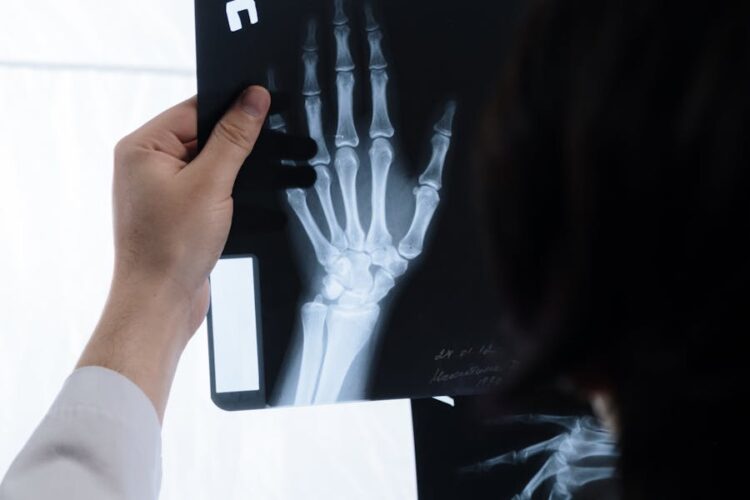Filing a personal injury claim can be a complex and stressful process, especially if you’re unfamiliar with the legal system. Understanding what to expect when pursuing a claim in Virginia can help you navigate the process more confidently. This guide outlines the critical steps, timelines, and considerations involved in filing a personal injury claim in Virginia in 2024.
Understanding Personal Injury Claims in Virginia
Personal injury claims arise when someone suffers harm due to another party’s negligence. Common cases include car accidents, slip-and-falls, medical malpractice, and workplace injuries. In Virginia, filing a successful claim requires proving the other party’s negligence directly caused your injury.
Steps to Filing a Personal Injury Claim in Virginia
1. Seek Immediate Medical Attention
Your health should be your first priority. Seek medical attention promptly, even if your injuries seem minor. A detailed medical report will serve as critical evidence for your claim.
Actionable Tip:
- Retain copies of all medical records, bills, and prescriptions to document the extent of your injuries.
“Prompt medical care not only ensures your safety but also strengthens your case,” says Dr. Laura Simmons, a Virginia-based medical-legal consultant.
2. Document the Incident Thoroughly
Collecting evidence is a crucial step in building your case. The more information you gather, the stronger your claim will be. Just as businesses use PPC statistics to optimize their marketing strategies by analyzing performance metrics, your documentation serves as the key data to strengthen your legal position.
What to Document:
- Photos and Videos: Capture the scene of the incident, any visible injuries, and property damage.
- Witness Information: Collect contact details of anyone who witnessed the incident.
- Official Reports: Obtain a copy of any police or accident reports.
“Thorough documentation often determines the success of a personal injury claim,” notes James Carter, Personal Injury Attorney at Carter & Associates.
3. Understand the Statute of Limitations
Virginia law sets a strict deadline for filing personal injury claims. As of 2024, the statute of limitations remains two years from the date of the injury. Failing to file within this timeframe typically results in losing your right to seek compensation.
Key Insight:
- Begin the claims process as soon as possible to avoid missing deadlines and to preserve evidence.
4. Consult an Experienced Personal Injury Lawyer
Navigating Virginia’s legal system can be challenging without professional guidance. An experienced personal injury attorney will assess your case, negotiate with insurance companies, and represent you in court if necessary.
Questions to Ask:
- How many personal injury cases have you handled in Virginia?
- What is your success rate in securing fair settlements or verdicts?
“Having a skilled attorney by your side can significantly improve your chances of a favorable outcome,” advises Emily Rogers, Legal Consultant at Rogers Legal Group.
5. File an Insurance Claim
Most personal injury claims begin with filing a claim with the at-fault party’s insurance provider. This involves submitting documentation of your injuries, damages, and proof of liability.
Steps to Take:
- Gather all evidence, including medical bills, repair estimates, and photos of the incident.
- Avoid giving recorded statements without consulting your lawyer.
6. Prepare for Negotiation
Insurance companies often attempt to minimize payouts. Be prepared to negotiate with the adjuster to reach a fair settlement.
Key Tips:
- Know the value of your claim by calculating all damages, including medical expenses, lost wages, and pain and suffering.
- Let your attorney handle communications to avoid inadvertently harming your case.
7. Litigation: When Negotiations Fail
If a fair settlement cannot be reached, your lawyer may recommend filing a lawsuit. Litigation involves presenting your case before a judge or jury, which can lead to a higher payout if successful.
What to Expect:
- Discovery Phase: Both sides gather evidence and depose witnesses.
- Trial: Your lawyer will present evidence and argue your case in court.
Types of Compensation Available in Virginia
Virginia allows personal injury claimants to seek two main types of damages:
1. Economic Damages
- Medical Expenses: Current and future treatment costs.
- Lost Wages: Compensation for income lost due to your injury.
- Property Damage: Costs to repair or replace damaged property.
2. Non-Economic Damages
- Pain and Suffering: Compensation for physical and emotional distress.
- Loss of Enjoyment: Reduced quality of life due to your injury.
Challenges You May Face
1. Contributory Negligence Rule
Virginia follows a contributory negligence rule, meaning you cannot recover damages if you are even 1% at fault for the incident. This rule underscores the importance of building a solid case.
2. Dealing with Insurance Companies
Insurance adjusters often use tactics to devalue your claim, such as disputing liability or downplaying your injuries. Partnering with a dedicated Virginia Injury Law Firm provides you with the legal support needed to push back against these strategies and secure fair compensation.
Conclusion:
Filing a personal injury claim in Virginia requires careful preparation and attention to detail. By seeking medical care, documenting the incident, consulting a lawyer, and understanding the legal process, you can navigate your claim with confidence.
Start early, gather strong evidence, and rely on experienced legal representation to secure the compensation you deserve in 2024.










